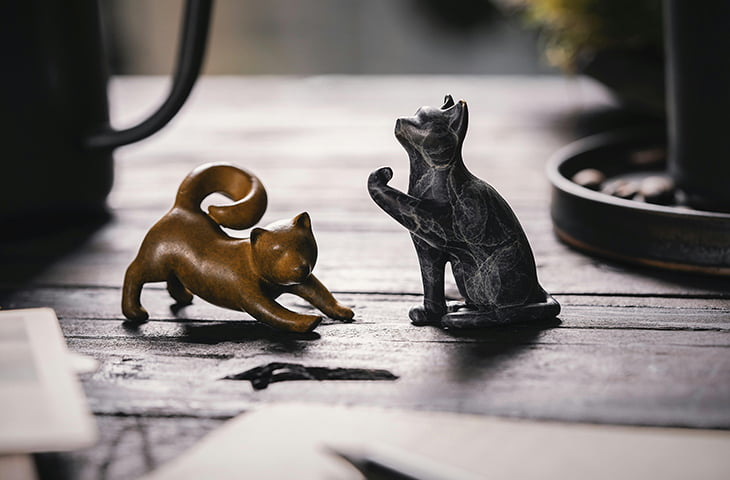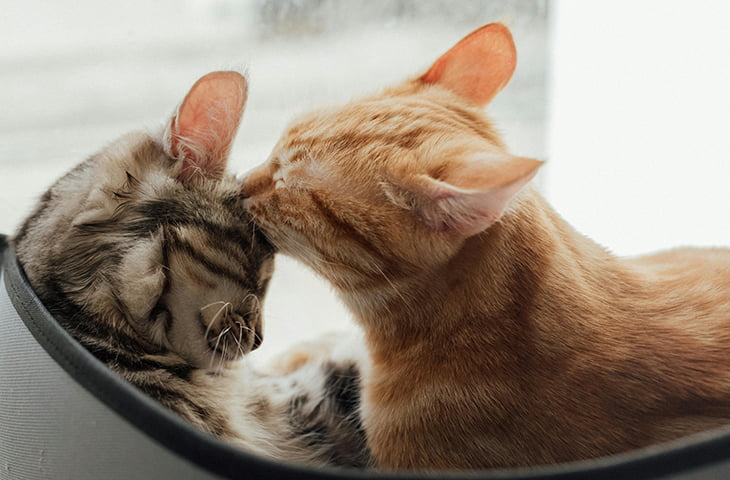Nearly Half Of Dog Owners Consider This The Hardest Part Of Owning A Pet, Do You?

12.05 BW Nonlead
https://www.barkandwhiskers.com/2016-05-23-nl-choosing-the-right-dog-food/
https://www.barkandwhiskers.com/p/2a534ce6-26b9-4b19-b5f5-3c57d1542ad2/
By Dr. Becker
What's the most difficult part of pet ownership? According to a survey of 900 U.S. dog owners conducted by Purina, it's choosing the right food. More than half of dog owners (and 68 percent of millennial dog owners) even felt that their dog's nutritional needs were more confusing than their own.1
This is understandable — your dog can't tell you how she's feeling, after all. Did she hate her morning meal, but ate it anyway? Did the food make her sick to her stomach, itchy, or bloated and gassy?
Or, are you feeding your pet ingredients that may be taxing her organ systems during digestion? Does the food contain questionable ingredients sourced from the great unknown?
It can seem overwhelming, but, really, choosing the right food for your dog is not rocket science, especially if you go back to the basics.
1 in 4 Dog Owners Is Overwhelmed by Food Choices
The Purina survey revealed that while most pet owners (70 percent) felt their chosen dog food mostly fit their pet's needs, they didn't believe it to be the "perfect fit."
Another 1 in 4 said they felt overwhelmed with the number of choices in the pet food aisle, and the same amount also said they spend more than 10 minutes trying to select the right variety.
Many of the pet owners (57 percent) also expressed positive interest in a pet food that could be personalized for their dog's nutritional needs.
This could be helpful if your pet has food allergies or other specific needs (like weight loss), however it's important to remember that your dog is a carnivore and, as such, requires a high-quality, meat-based diet.
By this, I mean a diet that's based on fresh, whole foods — not dried pellets made primarily of grains and byproducts with a bit of meat added in for good measure. You to need only look at your dog's ancestral diet — that of wolves — to understand what type of food she metabolically requires.
If your dog were a wild dog, she would catch and consume whole prey as well as scavenge carrion (dead animals).
Her diet would be supplemented with berries, grass, seeds, nuts, poop and a variety of other plants, which could comprise up to 30 percent of her overall diet, depending on lots of factors (weather, health, food scarcity, location, etc.).
Most dogs will thrive when given fresh, whole foods, which mimic the ancestral diet, but, unfortunately, many must make do with entirely processed, largely inferior alternatives.
Many Processed Pet Foods Can Leave Your Dog Nutritionally Deficient
Many diseases plaguing humans — cancer and diabetes among them — are now plaguing pets, and processed food diets are largely to blame.
Most commercial pet foods are based on high-glycemic, genetically engineered (GE) corn, wheat, rice or potato — grains and starches that have no place in your pet's diet, creating metabolically stressful insulin, glucagon and cortisol spikes throughout the day.
Carbs also break down into sugar, which fuels degenerative conditions such as diabetes, obesity and cancer.
Low-quality proteins and fats (not fit for human consumption) are combined with the starches, processed at high temperatures, a process that creates cancerous byproducts, like heterocyclic amines, and then supplemented with a synthetic vitamin/mineral blend, usually from China.
Dogs have adapted to this unnatural diet to some extent, producing more amylase to digest the unnaturally high levels of starch in their diets — if they didn't, they'd have likely gone extinct decades ago — but that doesn't mean they thrive on it.
And in my opinion, it doesn't give pet food companies the right to nutritionally abuse pets just because they can trick animals into eating their terrible food. Most pet owners want their dogs to live long, healthy lives, which is not the outcome of a processed diet.
We're now seeing generations of animals suffering from degenerative diseases that rarely occur in the wild, and I believe many of these diseases are the result of nutrient deficiencies that conventional veterinarians aren't recognizing.
That being said, many pet owners are demanding better options, which is why you've probably noticed an increase in "natural" and "grain-free" pet foods at your local store. Unfortunately, many pet parents aren't aware of exactly what these terms mean and can still end up inadvertently making the wrong choice for their pet.
In place of corn, wheat and potatoes, which have become negative buzzwords that many consumers try to avoid, you'll see peas, lentils, chickpeas and other sources of starch, which unfortunately have many of the same health implications as the ingredients they're replacing.
There are some decent options out there, but be aware that many grain-free options are not exactly healthy for your pet, and you'll have to do your homework, investigate the company, who's manufacturing the food and where the raw ingredients come from.
The Best and Worst Foods for Your Pet
In 2010, I published a list of 13 types of pet foods ranked from best to worst. That video remains one of the most popular videos on Mercola Healthy Pets, which speaks volumes about how confusing pet food shopping has become — and the desire many pet owners have for solid information regarding truly healthy choices.
Last year I updated the list, and you can view the results in the video above. At the bottom of the list is a homemade diet that is not nutritionally balanced. The converse — a nutritionally balanced, raw and homemade diet — is the top choice for pets, but you should only attempt this if you're committed to doing it right.
Thousands of good hearted but uneducated animal lovers have inadvertently made their pets sick by "winging it," and guessing at the nutritional requirements for their pets, creating massive nutritional deficiencies with a poorly designed homemade diet in short period of time, especially for growing, large-breed pups.
They end up at the veterinary clinic seeing doctors who become very upset (and rightfully so) about all of the avoidable health issues owners are creating by feeding unbalanced foods. This makes most vets preach "DON'T FEED YOUR PETS HUMAN FOOD, IT COULD MAKE THEM VERY SICK!"
Sadly, nothing is further from the truth, but because people do it wrong (by not following recipes ensuring optimal levels of iodine, vitamin D, vitamin E, manganese and other nutrients, including proper calcium and phosphorus balance). If you don't want to deal with balancing diets at home, choosing to feed a pre-balanced, commercially available raw food diet is a great choice. A freeze-dried/dehydrated diet is also good (although less so than fresh).
Human-grade canned food is a mid-range choice, but hard to find, followed by premium canned food. Dry food, even higher quality human-grade varieties, are less recommended because they are not biologically appropriate for dogs or cats. You may notice your dog become excessively thirsty after feeding her dry food, especially if you've been feeding her fresh raw food or canned. This is because the moisture content is so low.
Further, the starches in even grain-free, dry food may cause inflammatory issues in your pet. The exception to the rule is semi-moist food sold in pouches.
Although these would appear better than dry food because of the increased moisture content, they're typically made with propylene glycol, a chemical that's related to the antifreeze chemical ethylene glycol — you'll want to avoid semi-moist pouches because of this.
You Can Supplement Your Pet's Diet With Fresh Foods as Snacks
Depending on where your pet's food falls on the continuum, with fresh foods being the best and highly processed dry foods the worst, you'll want to step up to higher quality choices as your budget allows. Keep in mind, however, that it doesn't have to be all or nothing.
If you can afford to feed one or two fresh meals a week, there will be health benefits! Every time you replace a dead food with a fresh food, you are improving your pet's health. Feeding one fresh meal a day (and one entirely processed meal) provides substantial health benefits to your pets.
If you want to add more fresh food to your dog's diet but aren't ready to commit to a completely fresh food diet, or can't afford one, a good option is to choose fresh food snacks. Blueberries, broccoli, chia seeds in coconut oil, bits of fresh meats, raw pumpkin seeds, and even fermented vegetables and kefir may super healthy snacks for dogs.
For even more variety, try out these banana basil towers. Finally, if after watching the video above, you're still confused about what to feed your pet, type your question into the "search" box above. Mercola Healthy Pets is full of information about what types of foods will help your pet to truly thrive.


